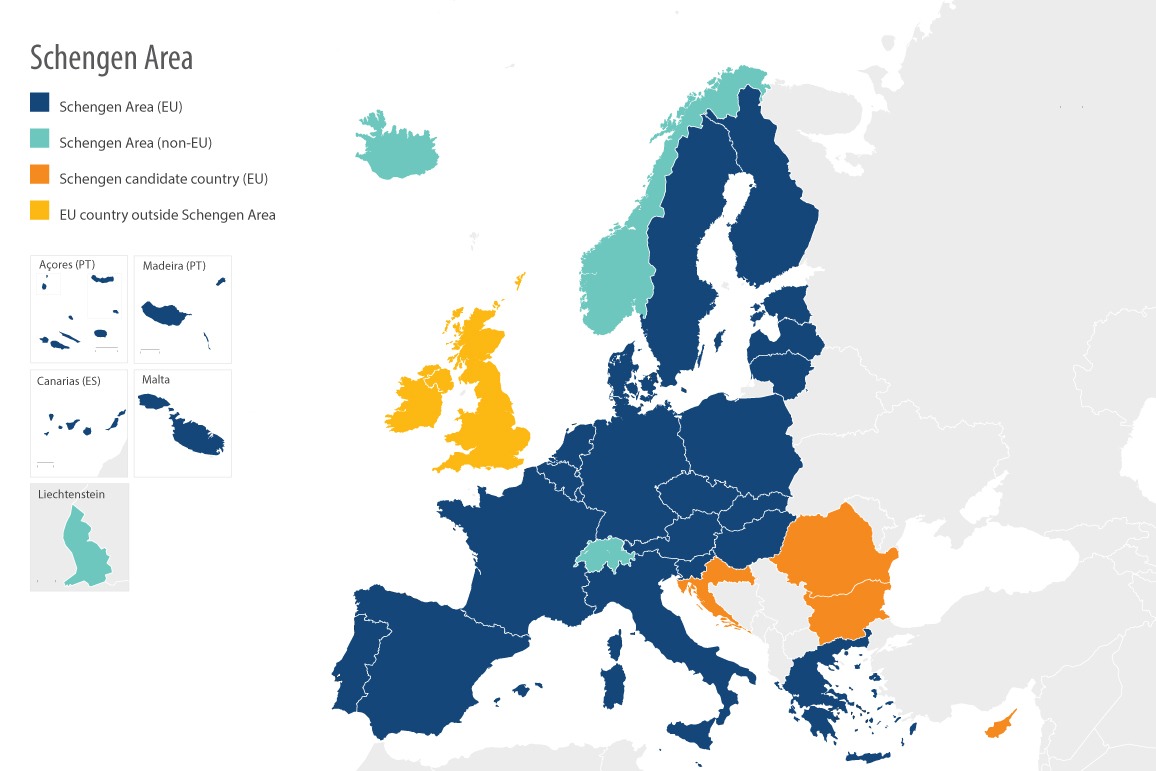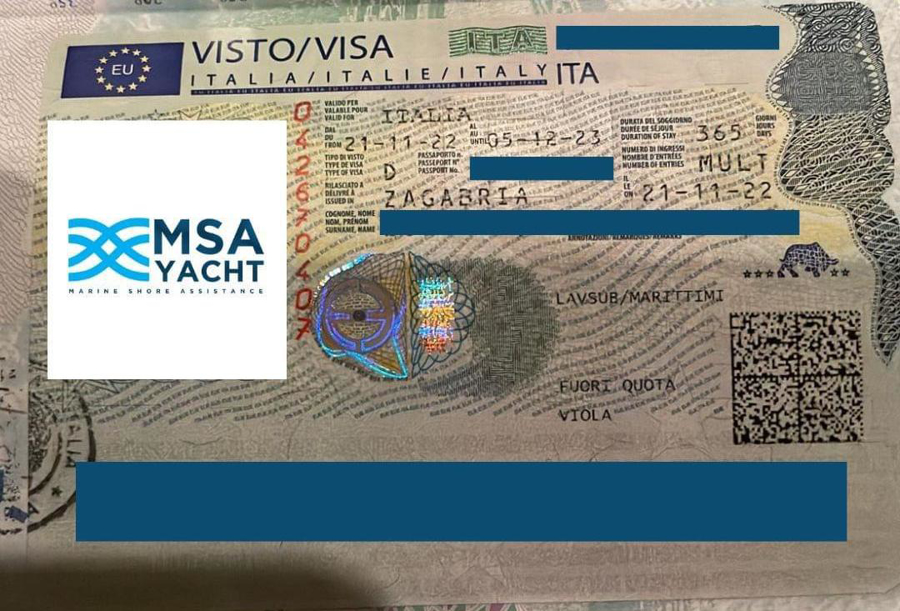Anúncios
Dreaming of exploring the rich cultures, stunning landscapes, and historic cities of Europe for an extended period? Navigating the visa process can feel overwhelming, but it doesn’t have to be.
If you’re asking yourself, “How do I get a long-term visa to Europe? ” you’re not alone. Many share your aspiration to live, work, or study in this diverse continent. Imagine sipping coffee in a Parisian café, wandering the ancient streets of Rome, or studying at a top university in Berlin, all without the ticking clock of a short-term stay.
Anúncios
This guide will walk you through the steps you need to take to turn that dream into reality. Stick with us, and discover how you can secure your long-term European adventure.
Types Of Long-term Visas
Exploring long-term visas for Europe? Options include student visas, work visas, and family reunification visas. Check specific country requirements and apply at their consulate.
Anúncios
When you’re considering a move to Europe, understanding the types of long-term visas is crucial. Each visa type caters to different needs, whether you’re seeking employment, education, family reunification, or retirement. Knowing which visa suits your situation can simplify the application process and bring you one step closer to your European dream.
Work Visa
A work visa is ideal if you plan to pursue a career in Europe. With the vibrant job markets in countries like Germany, France, and the Netherlands, opportunities abound. You’ll generally need a job offer from a European employer to get started. Once you have an offer, your employer often assists with the visa process. This ensures that both parties meet legal requirements. It’s a practical way to immerse yourself in a new culture while advancing your career.
Student Visa
Pursuing education in Europe is a thrilling opportunity. With a student visa, you can enroll in world-renowned universities. Many countries like Spain and Italy offer programs taught in English. When you secure admission to a university, the next step is applying for your student visa. This often requires proof of enrollment and financial stability. Imagine studying in historic cities, learning from esteemed professors, and making lifelong friends.
Family Reunion Visa
If you have family residing in Europe, a family reunion visa might be your path. This visa allows you to join your loved ones, fostering closer ties. It’s not just about living together; it’s about being part of a community. To apply, you’ll need documents proving your relationship and their residency status. This process strengthens family bonds and creates shared experiences in a new land. Have you ever thought about the joy of Sunday dinners in a European city with your family?
Retirement Visa
Retiring in Europe is a dream for many. Countries like Portugal and Greece offer retirement visas with appealing benefits. These visas often require proof of sufficient income or savings. Imagine spending your golden years enjoying the Mediterranean climate, rich history, and a relaxed lifestyle. It’s an invitation to explore new horizons at a leisurely pace. What’s your vision for retirement? Understanding these visa types opens doors to endless possibilities. Which path will you choose for your European adventure?
Eligibility Criteria
Thinking about moving to Europe for a longer stay? You might need a long-term visa. But what are the eligibility criteria? Understanding these requirements can save you time and hassle. Let’s dive into some key factors that can make or break your visa application.
Age Requirements
Age can be an essential factor in your application. Most countries in Europe do not have strict age restrictions for long-term visas. However, some might favor younger applicants for work visas or older ones for retirement visas. Are you in the age bracket they prefer? It’s worth checking specific country guidelines.
Financial Stability
Europe wants to know that you can support yourself during your stay. Financial stability is crucial. You’ll need to prove that you have enough funds. This might include bank statements, salary slips, or proof of sponsorship. Is your financial situation solid enough to convince them?
Health Insurance
Health insurance is a non-negotiable requirement for many European countries. You need to have coverage that meets their standards. This ensures you’re protected and don’t become a burden on their healthcare system. Do you have a plan that fits their criteria?
Securing a long-term visa to Europe involves meeting specific requirements. Each one is important in its own right. As you prepare your application, consider these criteria carefully. Are you ready to meet them head-on for your European adventure?
👉Related Post: How Often Can You Travel to the US With a Tourist Visa? Limits Explained
Application Process
Embarking on a journey to obtain a long-term visa to Europe is an exciting venture, but it can also be a complex process. Understanding the steps involved in the application process is crucial to ensure your dream of living in Europe becomes a reality. From gathering essential documents to submitting your application, each step requires careful attention and preparation.
Gathering Documents
Start by identifying the specific visa requirements for the country you wish to move to. Each country in Europe has its own set of rules and required documents. Common documents include your passport, proof of accommodation, and financial statements.
Don’t underestimate the importance of these documents. Missing or incorrect paperwork can delay your application. Double-check everything to ensure accuracy and completeness.
Consider creating a checklist to keep track of the documents you have collected. This will help you stay organized and avoid last-minute stress. Do you have everything ready?
Filling Out Application Forms
Once your documents are in order, it’s time to fill out the application forms. These forms are typically available online or at embassies. Pay close attention to the instructions provided.
Accuracy is key here. Mistakes can lead to rejection or delays. Take your time to fill out each section carefully. If you’re unsure about a particular field, seek clarification before proceeding.
Remember, these forms are your first impression. A well-filled application reflects your seriousness and preparedness. Are you ready to present your best self?
Submitting The Application
With your documents and forms ready, the next step is submission. This can often be done online or at the embassy. Make sure you know the specific submission process for your visa type.
Check the deadlines and ensure your application reaches the authorities on time. Late submissions can result in automatic rejection. Stay ahead of the timeline to avoid unnecessary setbacks.
Once submitted, it’s normal to feel anxious while waiting for a response. Use this time to prepare for your move and explore the cultural aspects of your future home. What will you do while you wait?
Each step in the application process builds upon the last, and attention to detail is your best ally. By taking the time to understand and prepare for each phase, you’re setting the stage for a successful transition to life in Europe. Are you ready to start your new adventure?
Country-specific Requirements
Understanding the country-specific requirements for a long-term visa in Europe is crucial. Each European country has its own set of rules and processes. Tailoring your application to these specifics can increase your chances of success. Below, we explore the requirements for four popular European destinations: Germany, France, Spain, and Italy.
Germany
Germany offers various long-term visas, including work, study, and family reunion. A key requirement is proof of financial stability. Applicants must show they can support themselves during their stay. Health insurance is mandatory. For employment visas, a job offer from a German employer is essential. Language proficiency in German or English may be required, depending on the visa type.
France
France requires different documents for long-term visas like work or study. Proof of accommodation is necessary. Applicants need to show they have a place to stay in France. Financial resources must be demonstrated. For work visas, a valid job contract from a French employer is mandatory. Health insurance is also required.
Spain
Spain’s long-term visas include options for workers, students, and retirees. Applicants must provide proof of sufficient funds. Health insurance is required for the entire stay. For work visas, a job offer from a Spanish company is necessary. For student visas, enrollment in a recognized educational institution is essential.
Italy
Italy offers long-term visas for work, study, and family reasons. Proof of financial means is a key requirement. Applicants need health insurance covering their stay. For employment visas, a job offer from an Italian employer is needed. Language proficiency may be required for certain visas.
Tips For A Successful Application
Securing a long-term visa to Europe involves careful planning and attention to detail. Gather all necessary documents, such as a valid passport and proof of financial stability. Submit a complete application with accurate information to increase your chances of approval.
Embarking on the journey to secure a long-term visa for Europe can be daunting. Yet, with the right preparation and mindset, you can navigate this process successfully. Your application is your passport to exploring vibrant cultures and breathtaking landscapes for an extended period. To help you on this path, consider these key tips for a successful application.
Avoid Common Mistakes
Many applicants stumble due to avoidable errors. Ensure your application is complete and legible. Double-check every section for accuracy and ensure all required documents are attached. Misunderstandings often arise from overlooked details. Have you considered asking a friend to review your application? A fresh pair of eyes can catch mistakes you might miss.
Providing Accurate Information
Accuracy is paramount. Authorities will scrutinize your application, and inconsistencies can lead to rejection. Imagine the frustration of having your application denied due to a simple oversight. Be honest and precise about your financial situation, travel plans, and personal details. Remember, they need to trust you will adhere to visa rules and regulations.
Seeking Professional Help
Sometimes, expert guidance is invaluable. If you feel overwhelmed, consulting with a visa specialist could be your best move. These professionals understand the intricacies of the application process. They can offer insights that simplify your journey and improve your chances of success. Have you thought about how much time and stress you could save by seeking expert advice? As you prepare your application, keep these tips in mind. The goal is not just to submit an application but to submit a compelling, error-free one that stands out. Your European adventure awaits, so let these insights guide you to a successful application.

Credit: www.axa-schengen.com
Post-application Steps
Getting a long-term visa to Europe involves more than just applying. After submitting, several steps are crucial. These help ensure a smooth process. This section covers what to do after your application. Each step is essential for success.
Interview Preparation
Interviews might be part of the visa process. Prepare well in advance. Gather all required documents. Practice common interview questions. Dress formally. Arrive on time. Show confidence and honesty. This demonstrates your seriousness.
Receiving Visa Decision
After the interview, wait for the decision. This takes a few weeks. Stay patient. The embassy will contact you. Check your email regularly. Keep your phone nearby. They may ask for more information.
Next Steps After Approval
Once approved, celebrate! Next, review your visa details. Ensure all information is correct. Plan your travel dates. Book flights and accommodation. Understand the rules of your visa. Stay informed about local laws. Enjoy your European journey!
Alternative Options
Exploring Europe long-term requires the right visa strategy. Various alternative options can help you secure a long-term stay. Understand these routes to make informed decisions. Each option offers unique benefits and requirements. Navigate these possibilities with clarity and confidence.
Schengen Visa
The Schengen Visa allows travel across 26 European countries. It’s primarily for short stays, up to 90 days in a 180-day period. This visa is perfect for tourists, business travelers, and family visits. To apply, submit a completed form, passport photos, and travel insurance. Proof of accommodation and financial means are also necessary. Processing times vary, so plan ahead.
Short-term Visa Extensions
Extending a short-term visa can extend your European adventure. Some countries allow visa extensions under specific conditions. Reasons include unforeseen circumstances or extended business needs. Always check the specific country’s regulations. Submit your application before your current visa expires. Provide reasons and supporting documents for your stay extension.
Visa-free Travel
Several countries enjoy visa-free travel to Europe. This allows a stay of up to 90 days within a 180-day period. Visa-free travelers must still respect the Schengen area’s rules. Always carry a valid passport and proof of return travel. Check if your country is eligible for visa-free travel. Requirements can change, so stay updated with the latest information.

Credit: www.toeuropeandbeyond.com

Credit: www.nauticassistance.com
Conclusion
Securing a long-term visa to Europe requires careful planning. Each country has its own rules. Research each country’s visa requirements thoroughly. Prepare your documents in advance. Ensure all forms are filled correctly. Contact the embassy for guidance. Be patient during the application process.
Follow up on your application status regularly. Stay informed about any changes in visa policies. With the right approach, you can enjoy an extended stay. Explore Europe’s rich culture and history. Enjoy the diverse landscapes and experiences. Start your journey today.
Your European adventure awaits.





